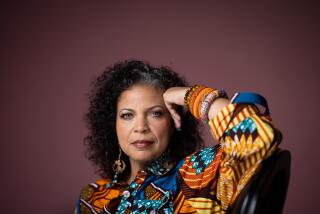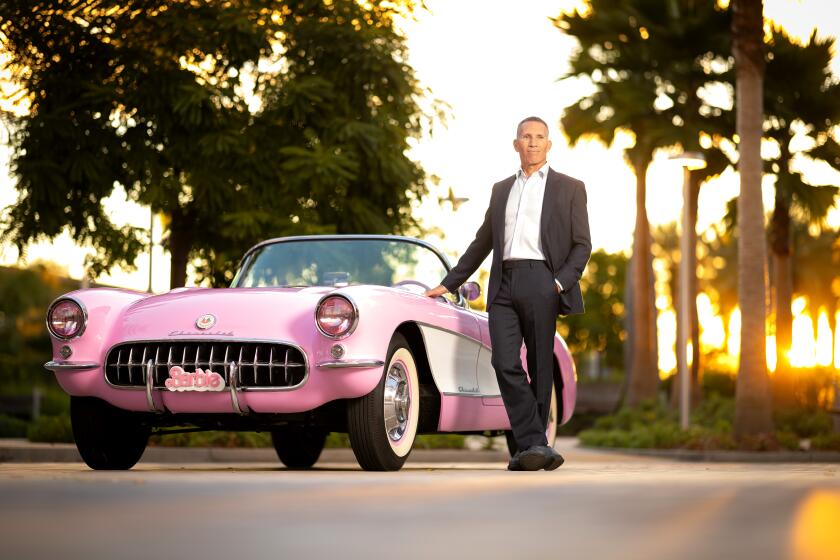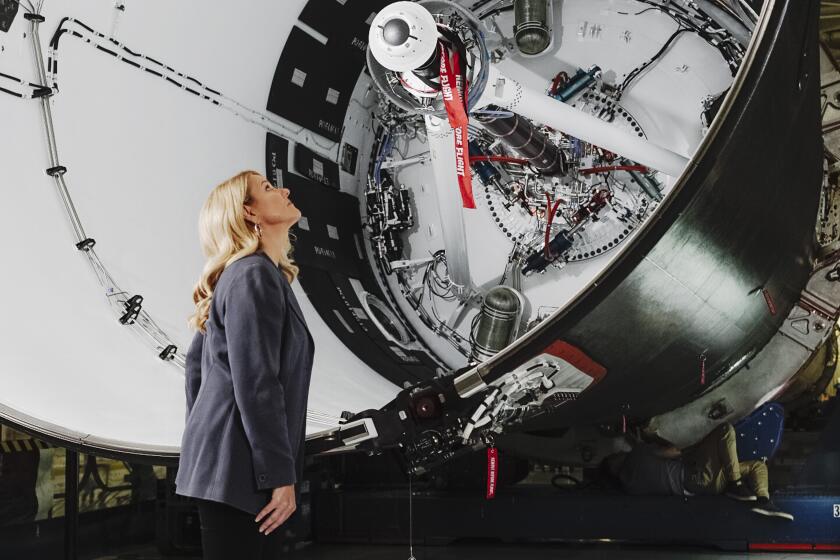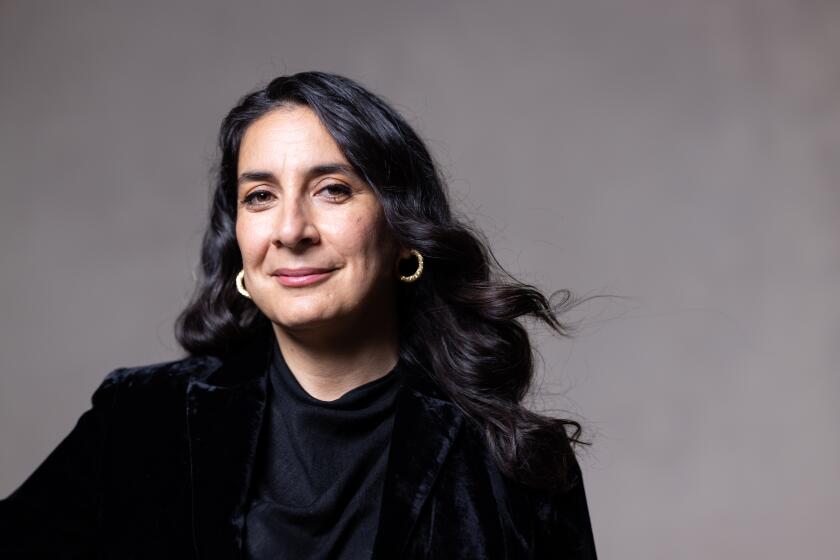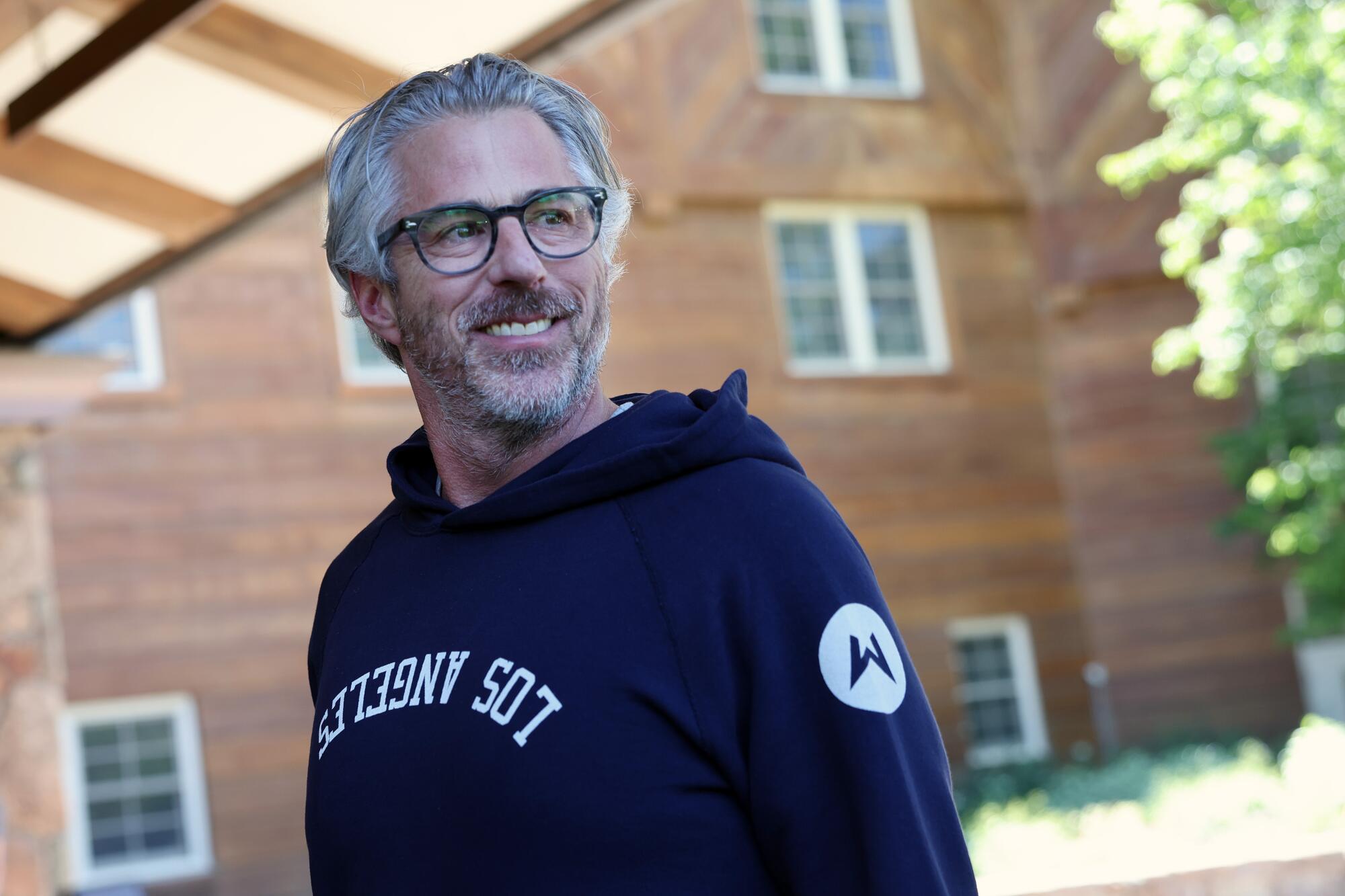
Promises don’t come much bigger than the one Casey Wasserman made to the people of Los Angeles.
The man in charge of organizing the 2028 Summer Olympics has vowed to hold the international sporting event, with its massive $7-billion price tag, on budget. No matter how many gold medals the Americans win, no matter how strong the television ratings, the Games will be labeled a bust if they overspend or fail to generate enough in corporate sponsorships, ticket sales and merchandising to cover expenses.
Discover the changemakers who are shaping every cultural corner of Los Angeles. This week we bring you The Disruptors. They include Mattel’s miracle maker, a modern Babe Ruth, a vendor avenger and more. All are agitators looking to rewrite the rules of influence and governance. Come back each Sunday for another installment.
If that happens, L.A. will join a long list of Olympic host cities left with sizable deficits, and Wasserman will get the blame.
“I don’t think about success or failure,” he said. “If you worry about what’s going to happen … you’ll lose sight of what you need to do each day.”
The 49-year-old L.A native — GQ magazine once dubbed him a “Jewish Tom Cruise” — grew up as a favored grandson of Hollywood mogul Lew Wasserman. After graduating from UCLA in 1996, he started an eponymous talent and marketing firm that grew to represent such pro athletes as NBA star Klay Thompson, Olympic swimmer Katie Ledecky and baseball slugger Giancarlo Stanton.
Recent years have seen expansion into music and entertainment, including the acquisition of Brillstein Entertainment Partners, the management-production company behind such shows as “The Sopranos,” “Just Shoot Me!” and “NewsRadio.”
With Garcetti now the U.S. ambassador to India, Wasserman has become the face of the L.A. Games.
Wasserman dove into the Olympic realm in 2017 when former Mayor Eric Garcetti recruited him to help L.A. win its host bid. The International Olympic Committee was impressed, official Nicole Hoevertsz said, by Wasserman’s “network of contacts” and “understanding of the most complex issues.” With Garcetti now the U.S. ambassador to India, Wasserman has become the face of the L.A. Games.
Critics point to two past stumbles: An Arena Football League franchise that shut down after nine seasons and a failed attempt to build an NFL stadium downtown.
The stakes are considerably higher this time because city and state legislators have agreed to serve as a financial backstop, pledging taxpayer dollars to pay for any cost overruns.
The city has some history on its side — the 1984 Summer Games finished with a surplus of more than $200 million. This time around, the LA28 organizing committee has already signed a roster of big-money sponsors and will save billions by using existing venues that include Staples Center, SoFi Stadium and the Coliseum.
But much could go wrong between now and then — economic downturn, natural disaster, another pandemic.
“I enjoy the pressure,” Wasserman said. “If this were easy and boring, I’m not sure it would be worth the time.”


